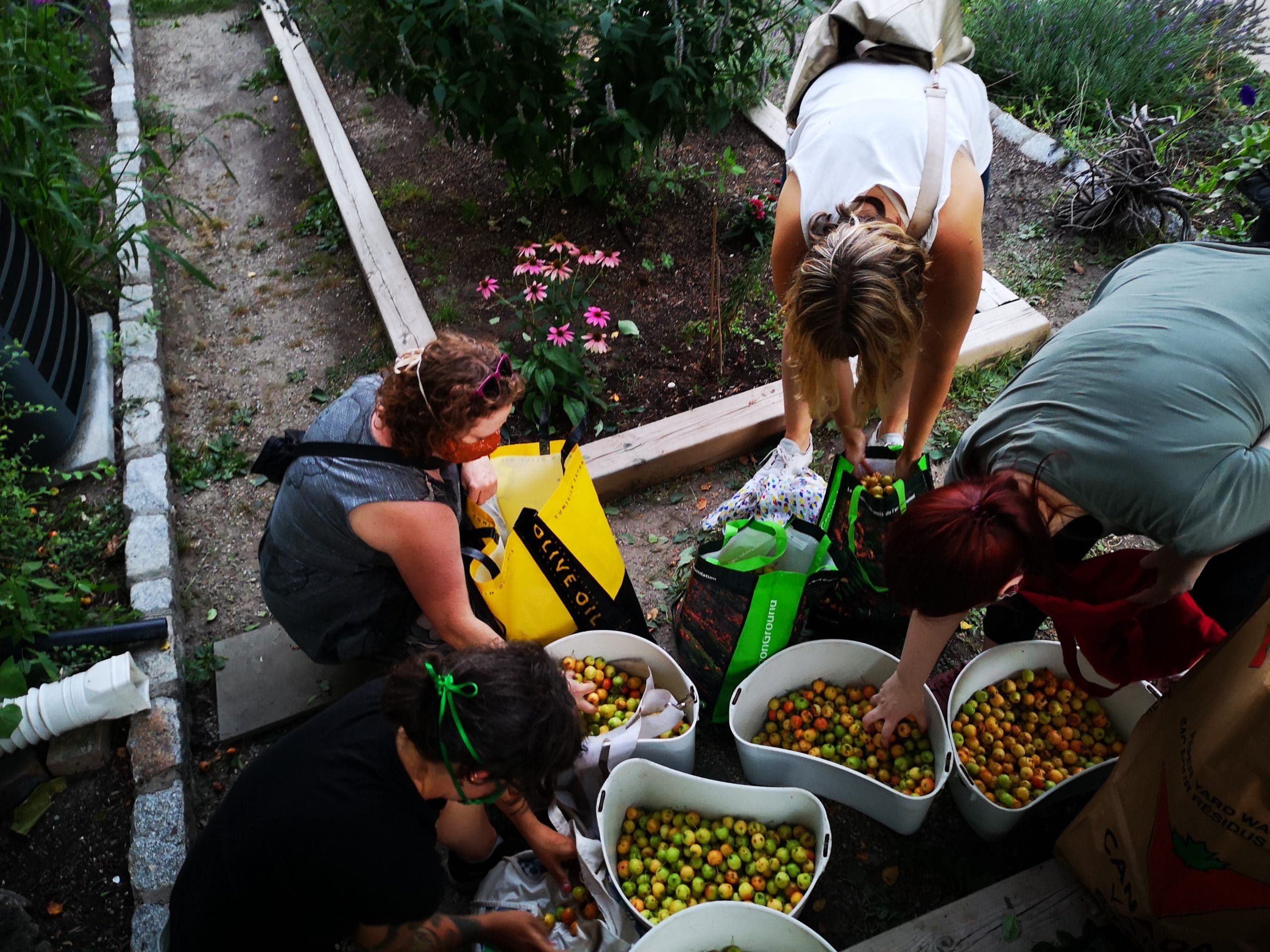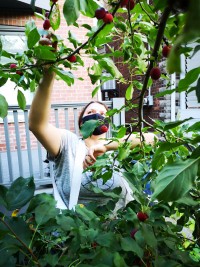Between June and October, Not Far From The Tree (NFFTT) has picked over 10,000 pounds of fresh fruit from Toronto backyards. The charity has been doing this work for over a decade but this has been a season like no other. As they complete their final picks of the season, NFFT’s picking program assistant Jessica Akiwi tells CJRU about the impact they’ve made in Toronto neighbourhoods amidst rising food insecurity.
“We often find that fruit waste is something that is largely overlooked or completely disregarded in the discussion around urban agriculture, food waste, accessibility, sustainability and food sovereignty,” she says.
This season, NFFTT has donated around 3698 pounds of fresh fruit to social service agencies. The project has partnerships with 35 organizations including Margaret’s House, YMCA Sprott house, Horizons for Youth, to name a few. Their fruit donations can lower an organization’s overall food programming cost or create a whole new offering. Akiwi explains that barriers to accessing fresh fruit often include the price and availability. When someone is trying to stretch their dollar, she says fruit is often an area where buyers will compromise on quality and price. She says some of the fruit they pick isn’t even available at grocery stores but they’re all around us in Toronto.
Not Far From The Tree picker
“Some things that we pick are oftentimes things that people are unaware of or things they wish they could purchase at the grocery store. Things like mulberries, currants, pawpaw, quince. Even things like serviceberries (Saskatoon berries), I don’t think anyone has ever purchased serviceberries from a grocery store, maybe a farmers market,” Akiwi adds.
Like many social inequities, the COVID-19 pandemic has heightened food insecurity in the city. Akiwi says more community members are facing precarious financial situations and the growing number of encampments are one indicator of this. NFFTT’s work carries a different weight in the context of a global pandemic, ranging from the way they operate to the way they make fruit accessible. She recalls a moment this season when a partner organization was inundated with fruit donations so NFFTT distributed the excess fruit to residents at a nearby encampment.
NFFTT picks fruit from the downtown core, south of Eglinton, east of Jane, west of Victoria Park and north of the waterfront. If you would like to get involved, NFFTT operates on a membership basis involving a $30 annual fee for tree registrants and $10 for pickers. Membership fees go towards insurance for pickers, equipment upkeep, and implementing community workshops which are paused due to the pandemic. More information is available on the NFFTT website. By sharing their story, Akiwi hopes it will inspire others to start similar movements in their own communities and take a harder look at what’s growing in their own neighbourhoods.
To learn more about NFFTT’s work addressing food insecurity, listen to the interview below:










